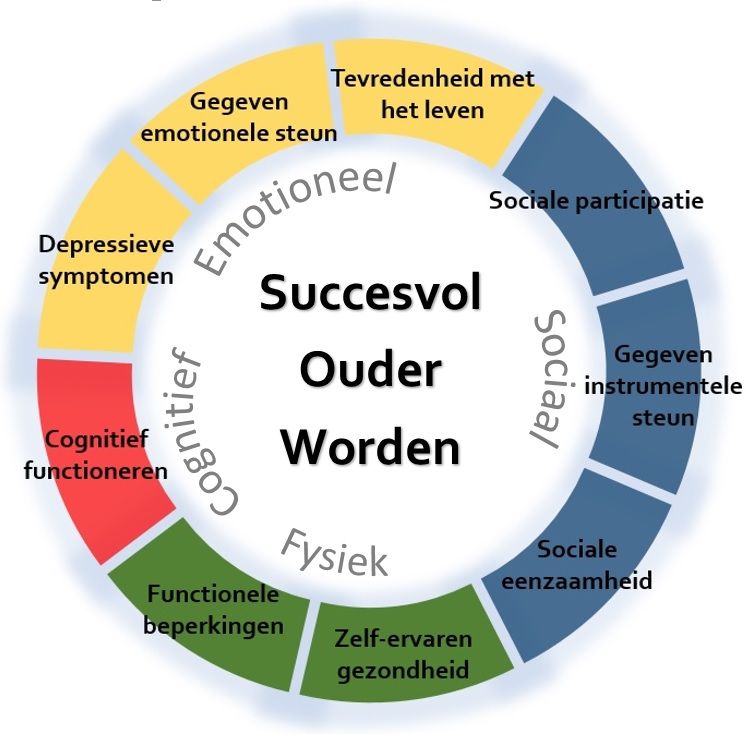Researcher Almar Kok provides an overview of the physical, mental and social functioning of a large group of people aged 55 and older over a period of 16 years. More than half of the more than 2000 participants in the LASA study for the elderly showed a favorable aging process in at least six of a total of nine aspects. However, a lower education level, a lower occupational skill level and a lower income were associated with less successful aging. Nevertheless, more than a third of elderly people with lifelong exposure to unfavorable socio-economic conditions have aged above average success. Kok calls these people “resilient”. He will be awarded a PhD on 16 April 2019.
Successful aging is a concept that refers to aging with little to no deterioration in mental, physical and social functioning. For 2,185 respondents (aged between 55 and 85 in 1992) in the Longitudinal Aging Study Amsterdam (LASA), Kok calculated an individual “Successful Aging Index” score.
The index consists of nine indicators that have been repeatedly measured over 16 years (in 1992, 1995, 1998, 2002, 2005 and 2008). The indicators are: depressive symptoms, cognitive functioning, loneliness, satisfaction with life, the amount of emotional support, instrumental support, social activity, functional limitations and self-experienced health.
Kok’s analyses showed that 45% of women and 58% of men aged successfully in six or more of the nine indicators. They also showed that there is a lot of diversity in the extent and way in which Dutch elderly people grow old successfully. However, the elderly with a low educational level, occupational skill level and income became a lot less successful on average than the elderly with a high socio-economic status. Nevertheless, there was also a lot of variation; 30% of the elderly with a low socio-economic status had an above-average score on the “Successful Aging Index”. This can be seen as a form of resilience.
Kok did follow-up research into this resilient group of elderly people. Compared to the group of elderly people with a high socio-economic status who also aged well above average, the resilient group was more physically active and often had a partner. Resilient elderly people also had an equally strong sense of control over life and an equal openness to social contacts. Interviews that Kok conducted with eleven of them also revealed that investing in younger generations through, for example, transferring (practical) knowledge, finding support in faith/religion, and putting the importance of social status into perspective contributed to resilience.
As one respondent (93) put it:
“I wonder: those people with more money. Are they so much happier than someone who has to struggle for it? I don’t think so. Normal working-class boys like us, we participate in everything to a certain extent, but we do not think about the money. We have each other, and we enjoy life. That’s what it’s all about. “
Kok thinks that resilience of people with an unfavorable socio-economic position could benefit from policy measures that focus on strengthening a sense of control over one’s own life, and stimulating social participation and a healthy lifestyle.
LASA (Longitudinal Aging Study Amsterdam) is a longitudinal study among the elderly in the UMC / VU of the Netherlands of Amsterdam. It started in 1992 and focuses on physical, mental, emotional and social functioning and the need for and care. www.lasa-vu.nl.




